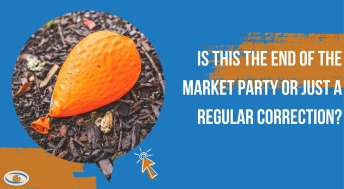Investors are always looking for an edge in the market, something that will make them better investors or, as it seems most of the time, something that might make them lose less money on their stocks. As such, they are always looking for rules — things to do and things not to do. They also look for advice from other, more famous, successful investors.
Over the years, some highly successful investors have provided investment quotes that have stood the test of time. They have done so because they simply make a lot of sense.
We recently came across a publication of 100 famous investment quotes. Let’s take a look at five of them, but not necessarily the most famous ones. We will try to interpret them for you, and judge both their effectiveness and how they might apply to your own investment journey.
“In the short run, the market is a voting machine, but in the long run, it is a weighing machine.”
This quote is attributed to Ben Graham, a value investor best known as the author of The Intelligent Investor. We love this quote as it perfectly describes the market.
Short-term investors focus on what’s happening now. They vote on trends, momentum, speculation and quarterly earnings reports.
Long-term investors know that the fundamentals will matter much, much more, over time. Things such as cash flow, dividends and earnings are massively more important than momentum, bubbles, euphoria and sector swings. Short-term investors forget this simple basic fact, and tend to read headlines rather than annual financial statements.
“The stock market is a device for transferring money from the impatient to the patient.”
This is a famous Warren Buffett quote, and we could have filled this whole article with his wisdom. Investors have grown increasingly impatient over the past 50 years. This year it was estimated that the average holding time for a stock has shrunk to 10 months. It probably should be 10 years.
Investors trade around short-term results and inconsequential news. They sell if the stock doesn’t perform well right now. Buffett knows this, and famously takes advantage of this short-term focus. In times of market crisis, he is usually there, gleefully buying from panicked investors who forget that every market crisis, at least so far, has been temporary.
Unlock the Power of Informed Investing with 5i Research!
DIY investing doesn't have to mean going it alone. At 5i Research, we're your trusted partner in navigating the stock market. Our platform offers comprehensive stock and market research, empowering you to make smart investment decisions.
- Investor Q&A: Have burning questions? Get answers from our team of experts and fellow investors in our dedicated Q&A section.
- Research Reports: With over 60 meticulously researched Canadian stocks, our reports offer in-depth analysis, giving you the confidence to invest wisely.
- Model Portfolios, Alerts, Forums, Portfolio Tracking, and Much More...
“Good investing is not necessarily about making good decisions, it’s about consistently not screwing up.”
Morgan Housel, the author of The Psychology of Money, is certainly not as famous as some of the other investors quoted here. But maybe he should be. His book has sold four million copies and has been translated into 53 languages. We really like his style.
His quote above summarizes parts of his book: Essentially, he outlines how you don’t need to be a genius in the stock market, you only have to not mess up over a long period of time.
Compounding even mediocre returns can result in huge wealth if you can manage to avoid the screw-ups and bombs that can destroy a portfolio. We like to say, “Water your flowers (winners) and pull your weeds (losers).” If you can eliminate big problems, your portfolio will do well, since even the small winners, over time, will compound into big winners.
“Stocks go down faster than they go up, but go up more often than they go down.”
David Gardner is the co-founder of Motley Fool, an investment service that likes to stress the common-sense aspects of investing. Any investor knows that fear is a more powerful emotion than greed, and that stocks tend to plummet far faster than they rise. No one typically panic buys, but every so often, millions of investors panic sell. Yet, over time, stocks have been one of the great wealth creators.
Yes, markets have bad years. Sometimes, they have two bad years in a row. Three bad years in a row is very rare. In the other years, equities go up, maybe not dramatically, but often steadily. On average, stocks will rise about 70 per cent of the time.
Anyone entering the market needs to know that they could immediately lose money. But they also need to know that if they stick with stocks long enough, they will likely end up ahead. Gardner’s quote nicely sums that up.
“If this is the next great growth stock, a little is all I need. If it’s not, a little is all I want.”
Tom Engle, another Motley Fool alum, is considered a legendary investor. He has lived off his portfolio since the 1980s. As growth managers, we have mixed views on this quote. If we think we’ve found the next greatest stock in the world, would we not want a lot of it?
But we can’t argue with Engle’s logic. A growth stock that compounds at a high rate over a long enough time is going to make you rich, regardless of how much you start with. The power of compounding is that awesome. But at the same time, if your growth stock turns out to be a dud, you only want to own a little of it.
So, it is kind of like tails you win big, heads you only lose a little. Housel’s quote combines the belief in compounding with the avoidance of messing up, as he advises above.
Take Care,







Comments
Login to post a comment.